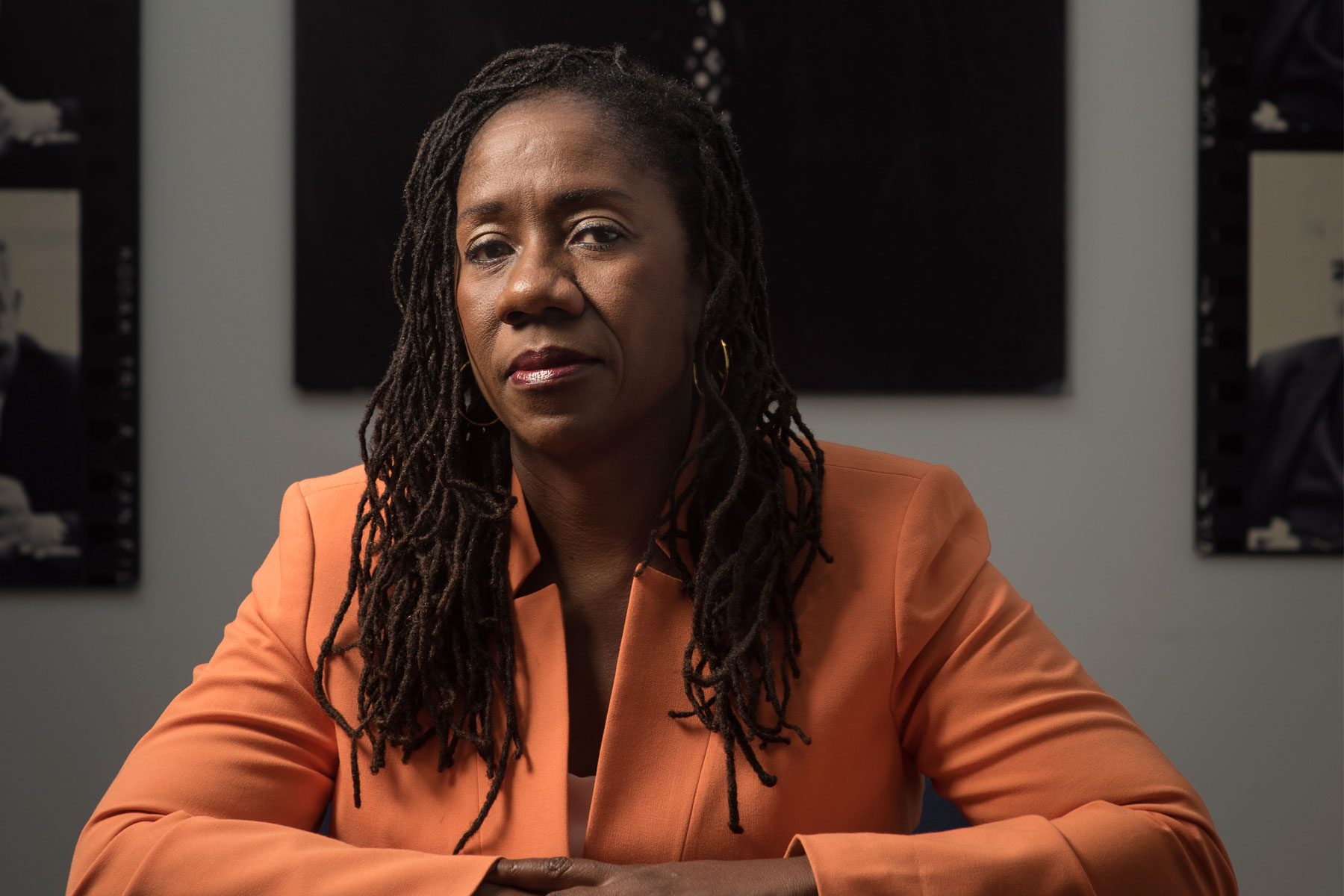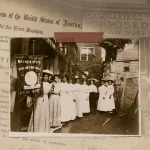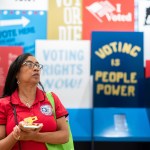Sherrilyn Ifill has witnessed many legal disputes over voting rights in the United States as a lawyer and the president and director-counsel of the NAACP Legal Defense and Educational Fund. But this era in the country represents a different challenge in the fight against voter suppression, she said at The 19th Represents Virtual Summit.
“Most of us who litigated voting rights cases traditionally, we’re focused on the front end. We were focused on access to registration. Then we were focused on access to voting on Election Day,” Ifill told The 19th’s Editor-at-Large Errin Haines. “I never had a case where I worried about the counting of the ballots, and whether there was going to be some subversion of the count. But now we see that that has become kind of standardized.”
In 2013, the Supreme Court struck down a provision of the 1965 Voting Rights Act that required certain states and localities with a history of racial discrimination to get changes to their election laws approved by the federal government. That decision prompted a wave of voter ID laws, closures of polling places and new requirements to demonstrate proof of citizenship.
Back-end hurdles have also emerged, including thousands of ballots being rejected for things like voter signatures. Another ruling from the high court this year makes legally fighting such restrictions more difficult.
“These voter suppression laws are coming fast and furious. … I don’t think that it’s over. I think we should expect more to happen,” Ifill said.
Still, Ifill noted ongoing efforts from legal organizations and advocacy groups to bring lawsuits and to mobilize voters of color. Such organizing played a key role in President Joe Biden’s victory and wins for Democrats in Georgia’s U.S. Senate runoff races earlier this year. But litigation and mobilization remain limited without action from Congress to enact broader protections, Ifill said.
“We are playing whack-a-mole. Litigation will not do it alone. Organizing can’t do it alone. We need this legislation,” she said. “I have said that failure is not an option because the stakes are so high. We are really at a critical moment.”
Congress has made some moves: This week Rep. Terri Sewell of Alabama introduced the John R. Lewis Voting Rights Advancement Act of 2021, which would restore and bolster provisions from the 1965 VRA. This month lawmakers in the House and Senate also introduced the Native American Voting Rights Act to counter challenges faced by Indigenous people on reservations, including nontraditional mailing addresses and long distances from polling places or ballot drop boxes. Ifill said she and her team have conversations with lawmakers across the political spectrum and members of the Biden administration to emphasize the importance of such legislation.
“No civil rights progress has ever been made in this country without a full complement of tools being brought to bear, to make pressure for change,” Ifill said.
Ifill said she is seeing signs of a changing attitude about the importance of voting rights, which she said was underscored by the way former President Donald Trump’s challenge to the 2020 election results culminated in the January 6 attack on the U.S. Capitol.
“While people believed that this was a niche issue that only affected one part of the population in one part of the country, they did not understand that it was a poison pill that would bring the whole democracy down,” she said.
While protecting voting access and election integrity is crucial, Ifill said lawmakers and advocates also need to strengthen people’s faith in the electoral process, which has not always led to substantive change for historically marginalized groups.
“People need to see the translation of their vote into a transformation in their lives. And that’s what real representation is supposed to deliver,” she said. “Until we start delivering on that, we will continue to have what we have in this country, which are abysmal turnout rates in elections, particularly in off-year elections.”







